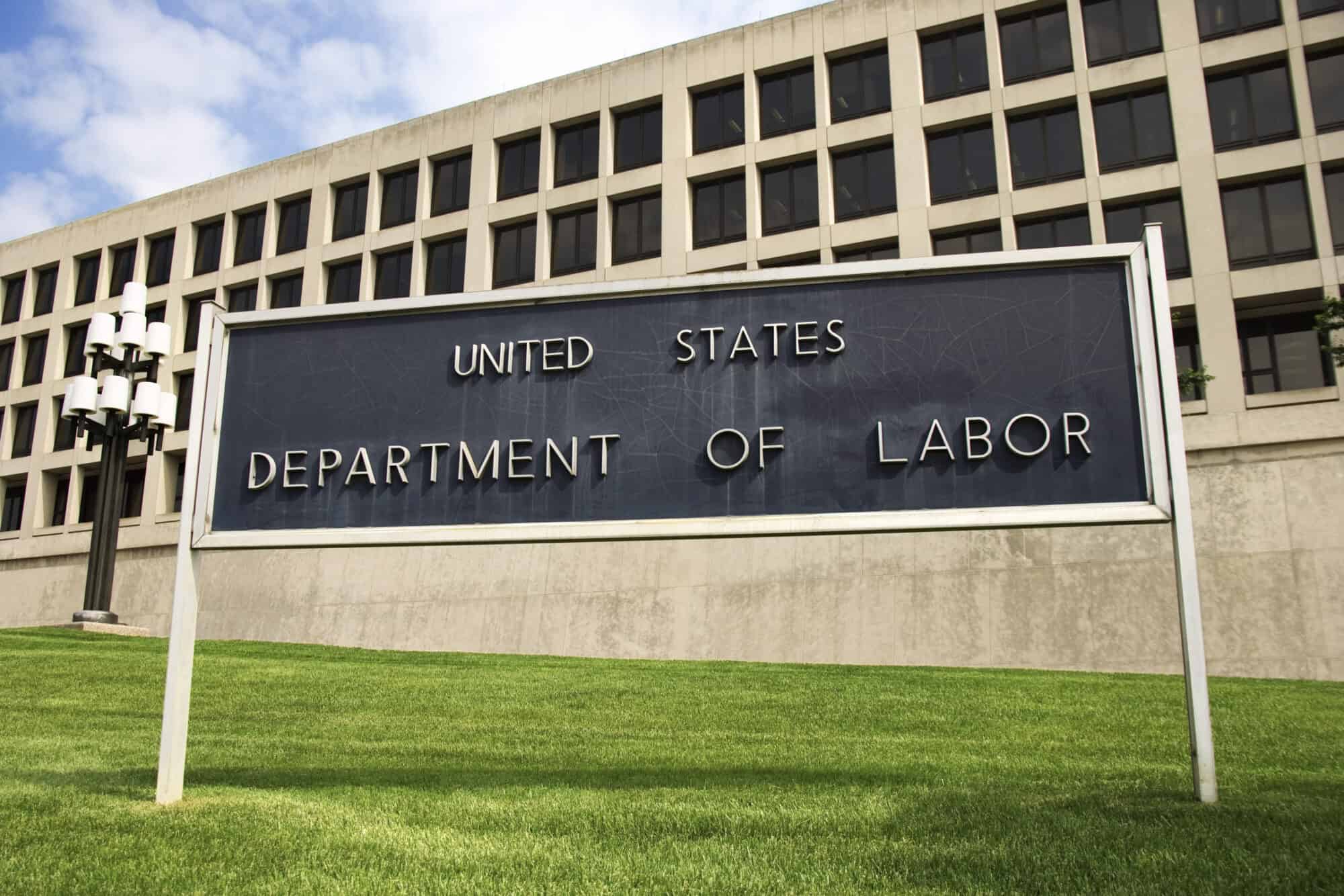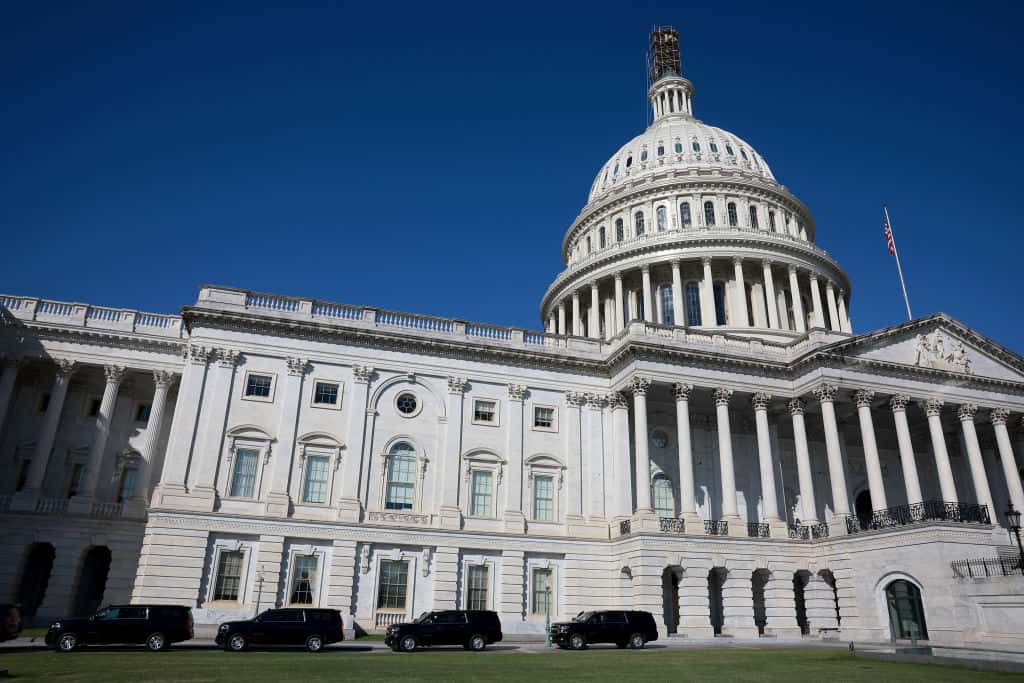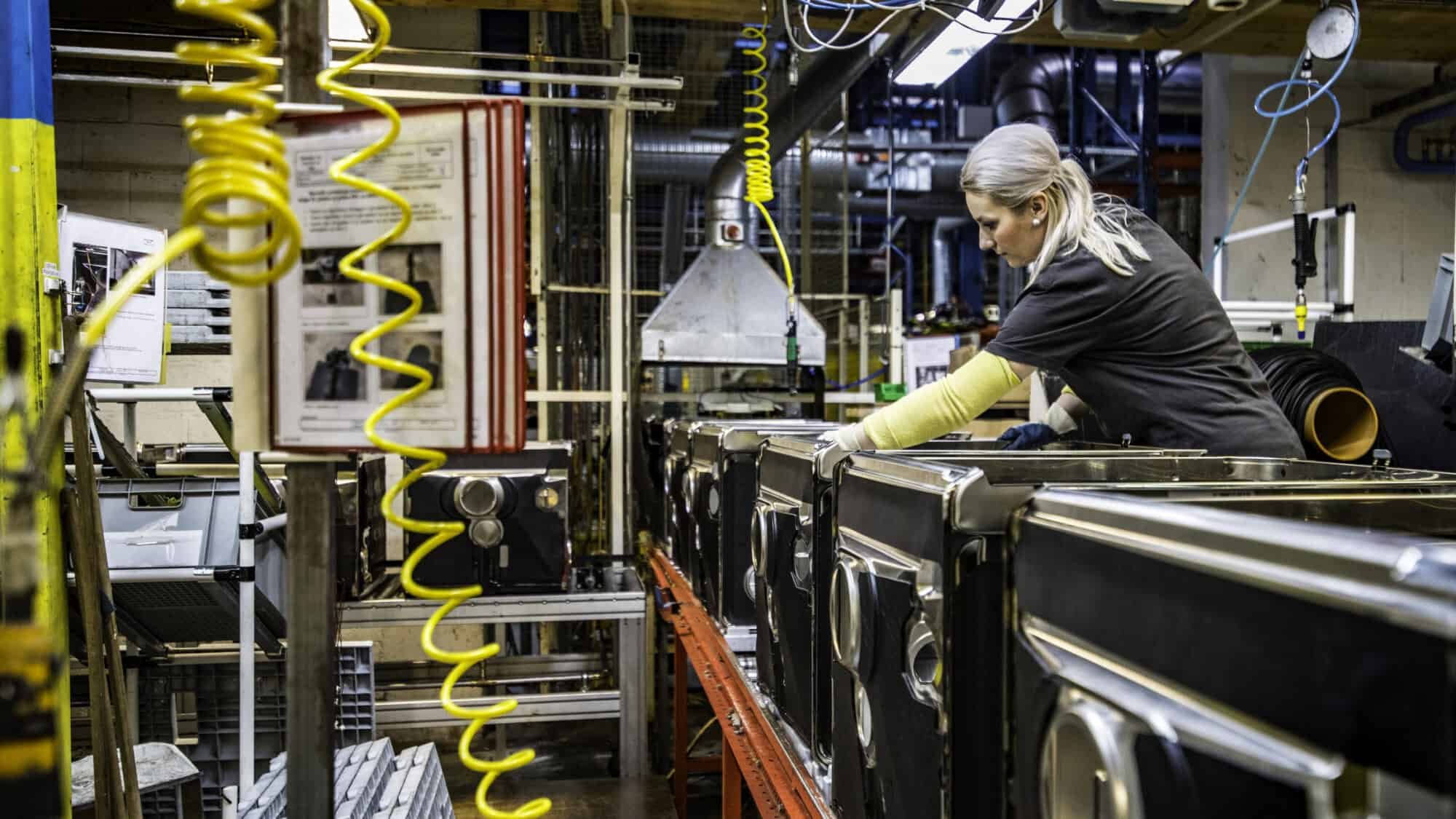NAM Files Suit to Block OSHA “Walkaround” Rule

The NAM and allied groups are challenging the U.S. Occupational Safety and Health Administration’s recently finalized “walkaround” rule.
What’s going on: On Tuesday, the NAM, joined by like-minded business organizations, filed a lawsuit in the Western District of Texas to block OSHA’s final rule revising the Worker Walkaround Representative Designation Process. That rule was finalized in April and is set to go into effect May 31.
- The new rule would allow nonemployees—including union representatives, plaintiffs’ attorneys, community organizers and even competitors—to accompany OSHA inspectors on workplace safety inspections.
Why it’s a problem: Not only does the final rule fail to advance the agency’s mission of ensuring workplace safety, but it is beyond the scope of OSHA’s authority. What’s more, it violates businesses’ rights, the NAM said.
- The new regulation “infringes on manufacturers’ right to exclude others from their property, threatens new liabilities and risks compromising manufacturers’ intellectual property. The NAM Legal Center is filing suit to prevent this harm,” NAM Chief Legal Officer Linda Kelly said.
NAM to Senate: Administration March-in Proposal Undermines IP, Innovation

The Biden administration’s push to invoke “march-in” rights is unlawful and would have “disastrous consequences” for the United States if enacted, the NAM told the Senate Tuesday.
What’s going on: Ahead of a Senate Judiciary Committee hearing on intellectual property in the biopharmaceutical sector, the NAM warned of the potentially dire consequences of the proposed march-in framework issued by the National Institute of Standards and Technology.
- The NIST proposal would allow the federal government to “march in” and seize manufacturers’ patent rights if an innovation was developed in any part with federal dollars.
- In the biopharmaceutical sector and other innovative industries, federal funding plays an important role in supporting early-stage research—but further R&D, product development and commercialization require hundreds of millions to billions of dollars in additional capital from investors and established companies.
- Robust IP protections ensure that manufacturers can bring innovative products to consumers.
Why it’s a problem: March-in would violate manufacturers’ IP rights and prevent investment into lifesaving and life-changing technologies, according to NAM Vice President of Domestic Policy Charles Crain.
- “Allowing march-in based on the price of a product or technology, as the NIST guidance proposes … would undermine manufacturers’ IP rights and have sweeping ramifications for innovation in the United States and America’s world-leading innovation economy,” Crain told the committee.
- Committee member Sen. Chris Coons (D-DE) agreed during the hearing that the proposal is fundamentally flawed. “Any company [that] invents [anything] or any researcher who invents anything is now open to the federal government saying, ‘I want that, and I don’t agree with the price you’re setting for it,’” he said.
What should happen: Congress must stop NIST’s overreach, Crain said.
- “Policies that threaten IP protections, like NIST’s proposed march-in guidance, will cede one of our greatest advantages to our competitors. Manufacturers [look forward] to work[ing] with the committee to ensure the U.S. maintains the strongest IP protections in the world in order to spur the discovery and commercialization of inventions that improve health and quality of life for all people.”
Manufacturers Challenge OSHA’s Unlawful Walkaround Rule
The NAM Legal Center Joins Industry Groups Seeking to Block Rule
Washington, D.C. – Today, the National Association of Manufacturers, joined by other business groups, filed suit in the Western District of Texas to challenge the Occupational Safety and Health Administration’s final rule amending the Worker Walkaround Representative Designation Process (Walkaround Rule).
The Walkaround Rule will allow an unlimited number of third parties, such as union representatives, plaintiffs’ attorneys and community organizers, to accompany OSHA inspectors on safety inspections.
“OSHA’s rule does nothing to advance its mission of improving workplace safety,” said NAM Chief Legal Officer Linda Kelly. “This rule is well beyond the scope of OSHA’s authority, and it infringes on manufacturers’ right to exclude others from their property, threatens new liabilities and risks compromising manufacturers’ intellectual property. The NAM Legal Center is filing suit to prevent this harm.”
Background:
- For more than 50 years, OSHA’s walkaround regulation authorized only an employee of an employer to serve as another employee’s representative during an OSHA inspection.
- In 2013, then-Deputy Assistant Labor Secretary Richard Fairfax issued a letter—commonly referred to as the Fairfax Memo or Sallman Letter—to a member of the Service Workers International Union, which stated that a nonemployee affiliated with a union or community organization could serve as a representative of employees during an OSHA inspection at a worksite without a collective bargaining agreement.
- In 2017, a trade group challenged the Fairfax Memo as unlawfully issued outside the notice-and-comment process and inconsistent with OSHA’s regulation that authorized only an employee of an employer to serve as another employee’s representative during an OSHA inspection.
- A federal court in Texas agreed with the trade group, and the Trump administration later rescinded the memo.
- In August 2023, OSHA released the proposed Walkaround Rule, and the NAM submitted comments urging OSHA to withdraw it.
-NAM-
The National Association of Manufacturers is the largest manufacturing association in the United States, representing small and large manufacturers in every industrial sector and in all 50 states. Manufacturing employs nearly 13 million men and women, contributes $2.89 trillion to the U.S. economy annually and accounts for 53% of private-sector research and development. The NAM is the powerful voice of the manufacturing community and the leading advocate for a policy agenda that helps manufacturers compete in the global economy and create jobs across the United States. For more information about the NAM or to follow us on Twitter and Facebook, please visit www.nam.org.
NAM, State Partners Call for Immediate Senate Action on Tax Bill

The Senate should immediately pass the Tax Relief for American Families and Workers Act, the NAM and its state partners told congressional leaders this week.
What’s going on: The NAM—along with 47 state manufacturing associations—on Monday continued its longtime, ongoing advocacy for the tax bill, which would restore three sector-crucial tax provisions: immediate expensing for domestic research and development expenses, enhanced interest deductibility on business loans and 100% accelerated depreciation for capital investments.
- “This critical legislation will support the ability of manufacturers in America to create jobs, invest in our businesses, give back to our communities and effectively compete in the global economy,” the groups said.
Why it’s important: If Congress fails to restore these key tax provisions, America’s competitiveness on the world stage will be under threat, they continued.
- “Without tax policies that encourage R&D and capital investment, countries with more favorable tax systems are capturing job-creating manufacturing investments.”
- China, for example, provides a 200% “super deduction” for companies’ R&D expenses, which is 10 times more than the U.S. gives. In 2022, the first full year following the expiration of immediate R&D expensing in the U.S., China’s R&D growth was three times that of the U.S.
What’s next: The Senate must not delay, the associations said. Congress must pass the Tax Relief for American Families and Workers Act—now.
The last word: “The breadth and depth of support for these critical, pro-growth tax provisions throughout the manufacturing industry shows the importance of immediate congressional action,” said NAM Vice President of Domestic Policy Charles Crain. “With additional damaging tax increases scheduled for next year, manufacturers cannot afford further delays.”
NAM Urges Passage of New MTB Bill

The House should move quickly to pass the Miscellaneous Tariff Bill Reform Act, legislation on which the NAM has led advocacy efforts.
What’s going on: On Tuesday, House Ways and Means Trade Subcommittee Chairman Adrian Smith (R-NE) introduced the Miscellaneous Tariff Bill Reform Act, which seeks to renew the MTB—a manufacturing-critical law that temporarily removes or reduces tariffs on products not available in the U.S.—as soon as possible.
- The NAM, which has long urged Congress to take up the issue, lauded the legislation and called for its swift passage.
- “Historically, the MTB has always had bipartisan support, and we thank House Ways and Means Trade Subcommittee Chairman Adrian Smith for his leadership and efforts to introduce MTB legislation,” said NAM Managing Vice President of Policy Chris Netram in a statement cited by Chairman Smith’s office. “We urge the House to act quickly so that we can get one step closer to getting this critical legislation to President Biden’s desk.”
- The last MTB expired in December 2020.
Why it’s important: In the three-and-a-half years that they have been operating without an MTB, manufacturers and other businesses in the U.S. have paid more than $1.3 million a day to get inputs they cannot find in the U.S., according to an NAM analysis.
- Passing the MTB through 2026, on the other hand, and reauthorizing passage of future MTB cycles will boost U.S. competitiveness.
- Tariff relief under the previous MTB increased U.S. gross domestic product by up to $3.3 billion every year, according to the U.S. International Trade Commission.
NAM: Manufacturers Need a Better Section 301 Exclusion Process

To thrive, create jobs and produce the essential goods the U.S. and our trading partners use every day, the manufacturing sector needs a fair, transparent Section 301 tariff exclusion process, the NAM said Tuesday.
- However, the tariff increases announced this week by the Biden administration could make it much more difficult for manufacturers to produce those critical items.
What’s going on: As part of the U.S. Trade Representative Office’s final Section 301 tariffs review—which the NAM had long urged the office to complete—President Biden said his administration plans to raise “tariffs on Chinese electric vehicles to roughly 100% … increas[e] a key tariff rate on steel and aluminum products to 25% from 7.5%,” raise the solar-cell tariff to 50% from 25% and create a new 25% duty on shipping cranes, according to Reuters (subscription).
- Section 301 of the Trade Act of 1974 authorizes the U.S. to act against foreign trade practices it believes violate agreements. The NAM has been pushing for a finalized report with a fair, transparent Section 301 tariff exclusion process that will both reduce the burden on manufacturers and keep pressure on China to adhere to fair practices.
- The process would allow manufacturers to ask for tariff exclusions for specific products they need.
- “The NAM has long advocated for a full global strategy and a rules-based trading system that benefit manufacturers and workers by opening new markets with our allies,” NAM President and CEO Jay Timmons said.
Why it’s important: Far from freeing the U.S. of “unacceptable risks” stemming from unfair Chinese trade practices, in the absence of a new exclusion process, these tariff increases could limit the ability of manufacturers in the U.S. to obtain needed supplies for goods production.
- This, in turn, could jeopardize U.S. jobs and competitiveness.
- “Manufacturers are concerned about the potential impact this broad swath of tariffs could have on our ability to produce the essential products needed to drive our economy forward, especially if critical inputs become less available and more costly,” said Timmons.
The background: The USTR is legally required to review Section 301 tariffs four years after they are initiated. This most recent review—started in May 2022—is overdue.
- The exclusion process the NAM has long requested allows manufacturers to ask for tariff exclusions for specific products they need.
What should be done: “Manufacturers urge the administration to negotiate new trade agreements with allies and partners around the world and create a new, comprehensive and transparent 301 exclusion process to ensure that manufacturing in America is not being disadvantaged by our own government,” Timmons concluded.
NAM, Allies: Allow Cross-Border Trade

Manufacturers and other businesses on both sides of the U.S.–Mexico border are feeling the pinch from sudden, intermittent port closures and other government measures being taken to mitigate the ongoing migrant crisis, the NAM and two allied groups told President Biden and Mexican President Andrés Manuel López Obrador this week.
What’s going on: Last December, U.S. Customs and Border Protection temporarily shuttered critical rail ports, including San Diego, California, and El Paso and Eagle Pass, Texas, in an effort to stem migration surges, idling nearly 10,000 rail cars on both sides of the border.
- Last month, the Texas Department of Public Safety renewed safety inspections of vehicles between Texas and Mexico, adding hours to cargo trucks’ border wait times (Freight Waves).
Why it’s important: Port closures and increased vehicle inspections “have significantly increased congestion around ports of entry, caused delays to cross-border trade and harmed productive businesses across industries and their employees,” said NAM President and CEO Jay Timmons, Texas Association of Business President and CEO Glenn Hamer and CONCAMIN President Alejandro Malagón.
- The stoppages “risk making critical supply chains between the United States and Mexico less resilient and dependable.”
What should be done: The U.S. and Mexican governments must commit to creating and abiding by predictable, transparent processes for cross-border trade, the groups urged.
- In addition to stopping the port closures for commercial freight and trucking, “our two countries should strive to enhance trading ties as the importance of nearshoring and friendshoring accelerates. Doing so will make our manufacturing, energy and agricultural sectors more competitive globally.”
Restoring MTB Will Strengthen Manufacturing
For More Than Three Years, Manufacturers Have Been Paying Millions of Dollars in Higher Prices for Critical Inputs
Washington, D.C. – Following the introduction of the Miscellaneous Tariff Bill Reform Act, National Association of Manufacturers Managing Vice President of Policy Chris Netram released the following statement:
“For more than three years, manufacturers—particularly small and medium-sized manufacturers—have been paying millions of dollars in higher prices for critical inputs due to the expiration of the Miscellaneous Tariff Bill. This legislation is a significant step forward for manufacturers, which are losing more than $1.3 million every day on products not available in the U.S.—more than $1.5 billion overall.
“Restoring the MTB would strengthen manufacturing here at home, giving our sector the ability to source raw materials and components that can’t be produced domestically at scale or at competitive prices.
“Historically, the MTB has always had bipartisan support, and we thank House Ways and Means Trade Subcommittee Chairman Adrian Smith for his leadership and efforts to introduce MTB legislation. We urge the House to act quickly so that we can get one step closer to getting this critical legislation to President Biden’s desk.”
-NAM-
The National Association of Manufacturers is the largest manufacturing association in the United States, representing small and large manufacturers in every industrial sector and in all 50 states. Manufacturing employs nearly 13 million men and women, contributes $2.89 trillion to the U.S. economy annually and accounts for 53% of private-sector research and development. The NAM is the powerful voice of the manufacturing community and the leading advocate for a policy agenda that helps manufacturers compete in the global economy and create jobs across the United States. For more information about the NAM or to follow us on Twitter and Facebook, please visit www.nam.org.
Manufacturers Call for Comprehensive, Transparent Section 301 Exclusion Process
Administration Must Pursue a Global Strategy To Open New Markets with Allies
Washington, D.C. – Following the Biden administration’s announcement of new 301 tariffs targeting Chinese products in sectors including electric vehicles, solar equipment, semiconductors, batteries, medical equipment and critical minerals, National Association of Manufacturers President and CEO Jay Timmons released the following statement:
“Manufacturers are concerned about the potential impact this broad swath of tariffs could have on our ability to produce the essential products needed to drive our economy forward, especially if critical inputs become less available and more costly.
“The NAM has long advocated for a full global strategy and a rules-based trading system that benefit manufacturers and workers by opening new markets with our allies. But when countries play by their own rules and create distortions, the U.S. should consider the use of all legislative and enforcement tools.
“The expansion of manufacturers’ global reach through a more open and more fair global trading environment has been pivotal to expanding U.S. industrial production to record levels, enabling businesses of all sizes to raise wages and create more high-skilled U.S. jobs. That is why manufacturers urge the administration to negotiate new trade agreements with allies and partners around the world and create a new, comprehensive and transparent 301 exclusion process to ensure that manufacturing in America is not being disadvantaged by our own government.
“Politicians and policymakers on both sides of the aisle need to understand that we can’t instantly reshape supply chains that took decades to build—especially the supply chains that bring us vital inputs and components essential to our everyday lives.
“Additionally, to fully unleash the power of manufacturing in the United States, policymakers must also ensure that America maintains a competitive tax and regulatory regime that allows manufacturers to ramp up domestic investment; streamline the permitting process so that new facilities and energy and infrastructure projects will not be held up by red tape; grow the manufacturing workforce; and protect innovation. Together, these policies will help manufacturers create jobs, grow wages and expand exports to the 95% of customers who reside outside of our border.”
-NAM-
The National Association of Manufacturers is the largest manufacturing association in the United States, representing small and large manufacturers in every industrial sector and in all 50 states. Manufacturing employs nearly 13 million men and women, contributes $2.89 trillion to the U.S. economy annually and accounts for 53% of private-sector research and development. The NAM is the powerful voice of the manufacturing community and the leading advocate for a policy agenda that helps manufacturers compete in the global economy and create jobs across the United States. For more information about the NAM or to follow us on Twitter and Facebook, please visit www.nam.org.
House Committee Approves PBM Reforms

The House Ways and Means Committee unanimously passed legislation Wednesday that includes much-needed reforms to pharmacy benefit managers, underregulated middlemen that raise health care costs for manufacturers and manufacturing workers (Fierce Healthcare).
What’s going on: PBM reforms contained in the Preserving Telehealth, Hospital and Ambulance Access Act include increasing transparency into PBMs’ business practices and delinking PBM compensation from medicines’ list prices. These changes will help reduce prices for seniors who rely on Medicare prescription drug plans.
- The NAM has been instrumental in advancing these reforms.
Why it’s important: “When Americans face soaring prices for medicines or treatments, there’s a good chance that is because a PBM has driven up the price,” NAM President and CEO Jay Timmons said Wednesday.
- “These middlemen operate with minimal transparency, and their practices distort the market, increasing the list prices patients pay for medicines while making it more difficult for manufacturers to offer quality, affordable health care benefits.”
What’s next: The legislation approved Wednesday applies to the Medicare market. The NAM is calling on Congress to enact similar changes in the commercial insurance market to lower health care costs for manufacturing employees who participate in employer-sponsored plans.
